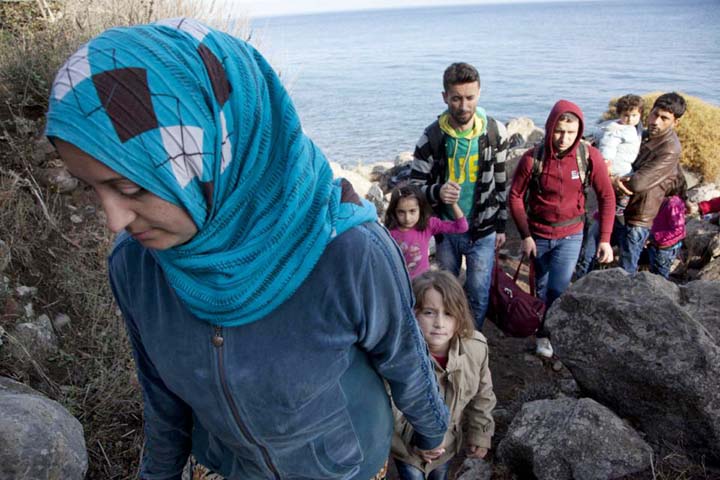
AP, Geneva :
The prime minister of Norway says the oil-rich Scandinavian country would be willing to take its share in the European Union’s relocation of refugees from countries hardest hit by the migration crisis.
Erna Solberg says non-EU member Norway has not yet decided how many people it will take.
Solberg says the number of asylum-seekers in Norway could reach 23,000 this year, up from previous estimates of 16,000. In 2016, it could reach 33,000.
Speaking before the Storting, or Parliament, she said Tuesday that should 40,000 to 50,000 people be granted asylum in Norway, costs over the next five years could be up to 50 billion kroner ($6.2 billion).
The international Organization for Migration estimates that more than 3,000 people have now died while trying to cross the Mediterranean to Europe this year.
Spokesman Joel Millman of the Geneva-based inter-governmental agency says 3,103 people have died in 2015 during the crossing – more than 100 of which have only been recorded now because of internal “housekeeping” of the statistics in recent days.
IOM says more than 593,000 people have crossed this year – of which 453,000 traveled from Turkey to Greece, which has faced a massive influx of people from Syria.
Ninety percent of the deaths this year were on the high Mediterranean, mainly between Libya and Italy. The IOM says that those arriving in Italy are much more diverse, with large contingents from at least 16 countries.
Meanwhile, Germany, facing a record migrant influx, will extend temporary border controls until the end of October, with a special focus on the Austrian border, the interior ministry said Tuesday.
Berlin, which started to implement the controls on September 13, has told the European Commission it will maintain them until October 31 as “the situation at the border is such that we cannot do without them”, a ministry spokeswoman told AFP.
“We need to return to an orderly handling of refugee policy.”
In the passport-free Schengen Area of 26 European countries, members can temporarily reinstate border controls with other member states if they cite a security threat or exceptional circumstances.
Members can reinstate the border controls for 10 days and then maintain them for “renewable periods” of up to 20 days, for a maximum total of two months.
Germany, the EU’s most populous country and top economy, has taken in the largest share of migrants arriving in Europe to escape war and poverty, with total numbers expected to reach 800,000 to one million this year.
Chancellor Angela Merkel has urged the country to welcome the newcomers and help quickly integrate them, but has faced harsh criticism and falling approval ratings amid rising fears about the burden the refugee wave poses for Germany.
In the southern state of Bavaria-the main gateway for migrants travelling through the Balkans and Austria-state premier Horst Seehofer has proposed setting up ‘transit zones’ where migrants would be held while their asylum claims are assessed.

